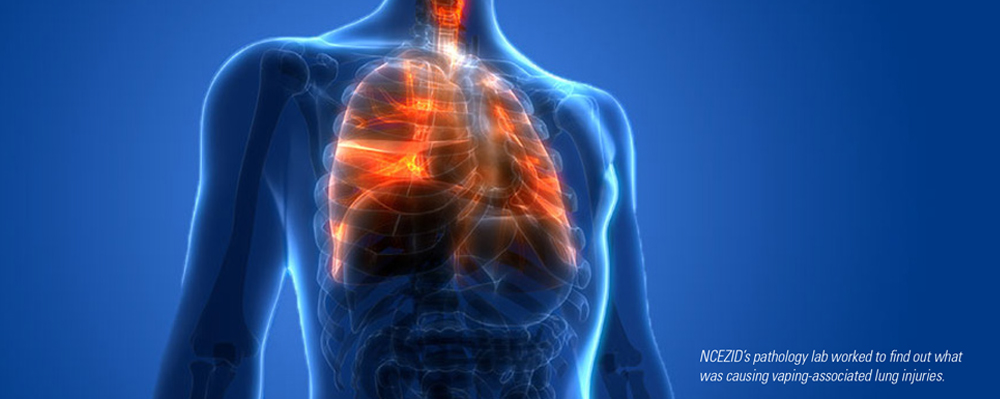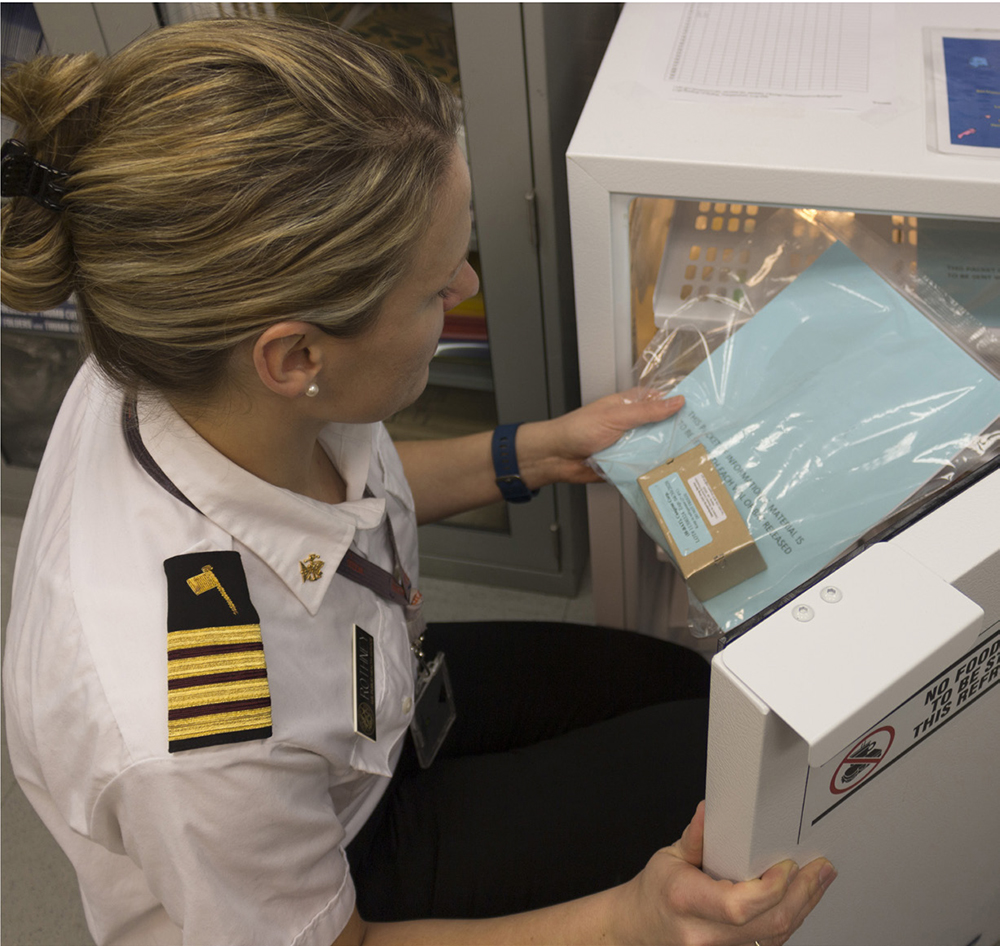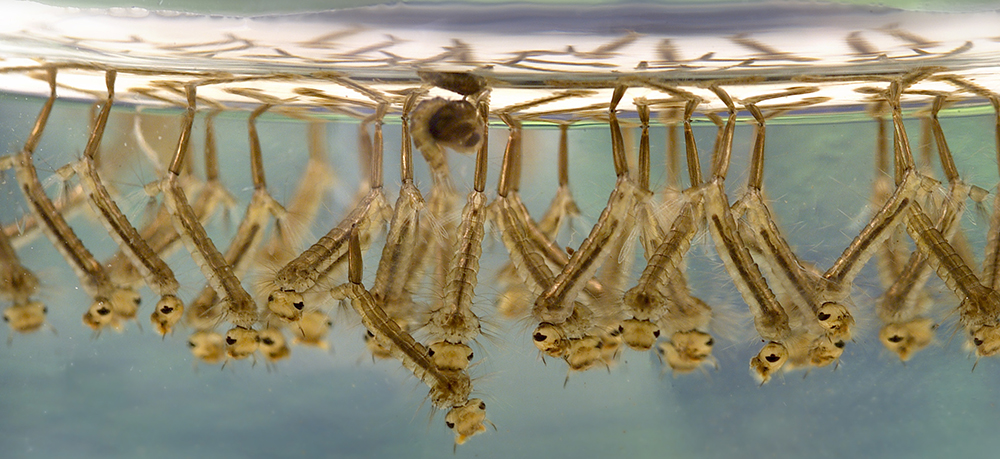Breaking the mold
In 2019, NCEZID scientists were tapped to provide expertise to help with some of today’s most concerning and headline-generating public health problems. Working beyond their usual scope of emerging and zoonotic infectious diseases, they rose to the challenge.

NCEZID lab investigates outbreak of lung injury

As part of a nationwide investigation into lung injury and deaths associated with the use of e-cigarette, or vaping, products, the CDC Infectious Diseases Pathology Laboratory tested patient tissue samples to better understand how the injuries may have occurred. As of December 27, a total of 2,561 cases, including 55 deaths, have been reported to CDC from across the country and US territories. The outbreak has disproportionately affected people under the age of 35 and most patients report a history of using THC- containing vaping products. NCEZID’s lab work is a critical component of the ongoing CDC response to this public health issue.
New program helps mosquito hunters sharpen skills
Through an innovative program known as the Vector-Borne Disease Regional Centers of Excellence, students from universities across the country are making strides in preventing mosquitoes from spreading pathogens. In one example, a local mosquito control unit in southeast Texas called on the Midwest Vector-Borne Disease Center of Excellence for assistance after a hurricane hit the area.
Student trainees and staff deployed to the area where they identified the species of thousands of mosquitoes, set mosquito traps in the field, and assisted with insecticide-resistance field studies. Moving forward, the US Vector-Borne Disease Regional Centers of Excellence will continue to train students while helping communities in need to control mosquitoes and the diseases that can result from their bites.
NCEZID action ensures that quarantine stations provide life-saving medicine

In 2019, 11 CDC quarantine stations began dispensing a life-saving antimalarial drug to all patients with severe malaria. Photo credit: Derek Sakris, CDC
For decades, several of NCEZID’s quarantine stations have stocked life-saving medicine to treat botulism, diphtheria, and malaria so they can be delivered rapidly to patients in need across the country. In late 2018, the manufacturer of quinidine, the only antimalarial drug available for severe malaria in the United States, announced that it would cease production of the drug. CDC has also distributed artesunate, the first-line, World Health Organization-approved medication for severe malaria, but only to patients who didn’t improve on quinidine. In 2019, CDC secured approval to distribute artesunate for all cases of severe malaria. In April 2019, the CDC Drug Service expanded operations to provide this life-saving drug. Eleven US quarantine stations work around the clock to ensure quick delivery to treating hospitals. In this year alone, CDC’s artesunate supplies reached 247 critically ill people across the country, saving lives that might have otherwise been lost.

